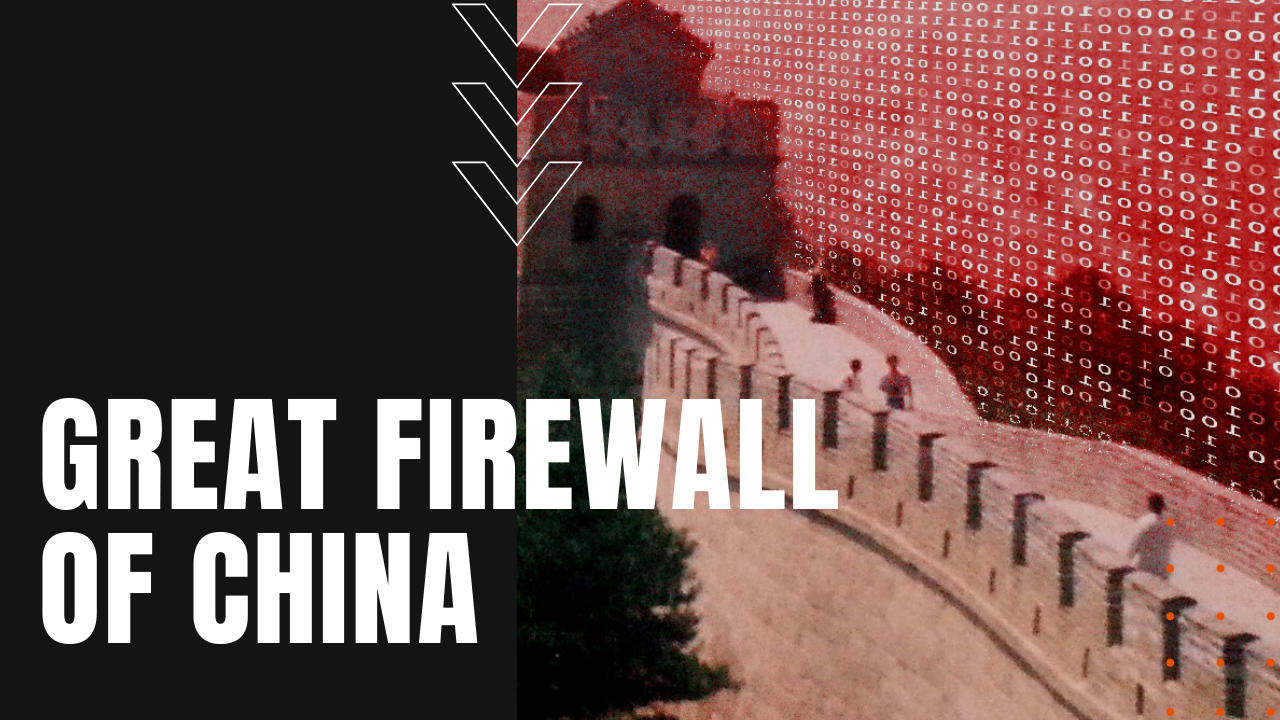The Great Firewall of China

First coined by sinologist Geremie Barme in 1997, China’s Great Firewall is a combination of legislative actions and technologies enforced by the People’s Republic of China, designed to regulate domestic content on China’s Internet.
Among other things, the Great Firewall blocks access to selected foreign websites as well monitoring oversight of all cross-border internet traffic, while blocking access to foreign tools such as Google Search, Facebook, Twitter and Wikipedia. Besides censorship, the Great Firewall of China heavily influenced the development of China’s own internal internet economy, by blocking most foreign technology platforms and instead, nurturing the growth of domestic companies such as Weibo, Bilibili, Tencent and Alibaba.
China’s Censorship of the Internet
Techniques deployed by the Chinese government to maintain Internet censorship include modifying search results for terms, such as they did after artist and activist Ai Weiwei’s arrest after his open criticism of the Chinese government’s stance on democracy and human rights.
The Great Firewall also includes open petitions aimed at global tech companies to remove offending content, including a petition to Apple during the Hong Kong protests of 2019 to 2020, requesting that the Quartz business news publication app be removed from Apple’s Chinese App Store. Originally operated by a complex of agencies as part of the Golden Shield Project, in 2013, management of the Great Firewall was handed over to the Cyberspace Administration of China, which was chartered to translate the Chinese Communist Party’s will into technical control and censorship over the Internet.
As outlined in China’s “one country, two systems” principle, Hong Kong and Macau are not affected by the Great Firewall, since, at least until recently, both regions have maintained their own governmental and legal systems, which affords residents in both cities a higher degree of autonomy.
